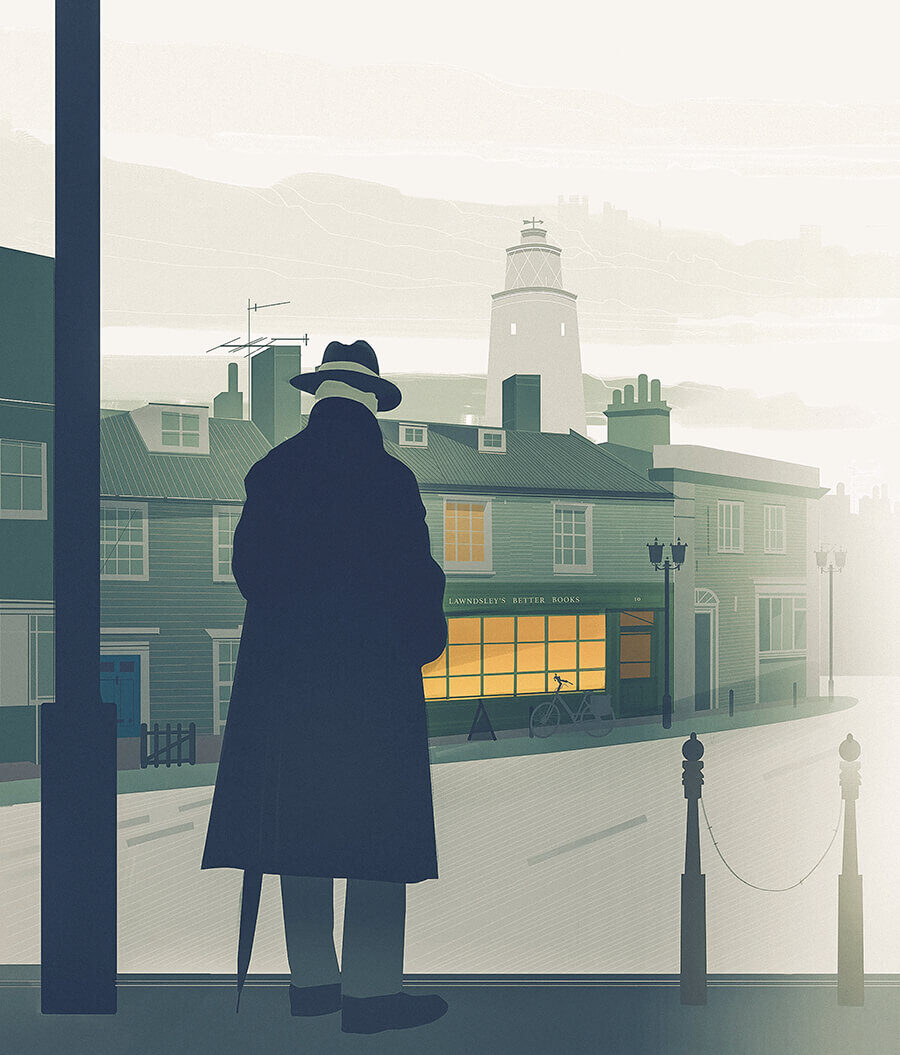
Illustrations by Darya Shnykina
In a small seaside town perched on the outer shores of East Anglia, a thirty-three-year-old bookseller named Julian Lawndsley emerged from the side door of his brand-new shop and, clutching to his throat the velvet collars of a black overcoat left over from the City life he had renounced two months previously, set off at a forward lean to battle his way along the desolate seafront of shingle beach in search of the one café that served breakfast at this dismal time of year.
Buy a copy at
Barnes and Noble
…
















































































































